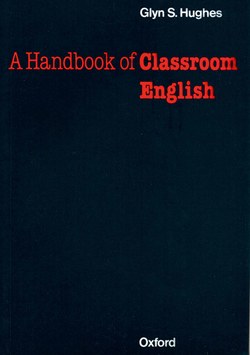Handbook of Classroom English

Реклама. ООО «ЛитРес», ИНН: 7719571260.
Оглавление
Glynn S. Hughes. Handbook of Classroom English
INTRODUCTION
Unit 1
GETTING THINGS DONE IN THE CLASSROOM
Unit 2
ASKING QUESTIONS
Unit 3
A BEGINNING OF LESSON
Unit 4
B END OF LESSON
Unit 5
C SET PHRASES
Unit 6
D TEXTBOOK ACTIVITY
Unit 7
E BLACKBOARD ACTIVITY
F TAPE ACTIVITY
G SLIDES, PICTURES, OHP
Unit 8
H GAMES AND SONGS
J MOVEMENT, GENERAL ACTIVITY
K CLASS CONTROL
Unit 9
L REPETITION AND RESPONSES
M ENCOURAGEMENT AND CONFIRMATION
N PROGRESS IN WORK
Unit 10
P LANGUAGE WORK
APPENDIX: PUPIL LANGUAGE
Отрывок из книги
The aim of this book is to present and practise the language required by the teacher of English in the practical day-to-day management of classes. It is intended for two main groups of readers:
The rather different needs of these two groups have meant that the format of the book is a compromise between a textbook and a work of reference.
.....
Whatever the subject taught, all teachers require this specialized classroom competence and should be trained in it. Foreign language teachers in particular require linguistic training aimed at the classroom situation since, if they believe in the maximum use of the L2, that is, the language being taught, they are obliged to use it both as the goal of their teaching and as the prime medium of instruction and classroom management. Despite the linguistic demands of the L2 teaching situation, foreign language graduates are seldom adequately prepared for the seemingly simple task of running a class in the L2. The nature of the first-degree study programme may have meant that there was no opportunity to practise the key classroom functions of organization and interrogation, or teacher training units may be unwilling to interfere in what appears to be an aspect of ‘knowledge of subject’. The result is generally that the trainee teacher acquires a very limited repertoire of classroom phrases, or makes as little use of the L2 as possible. In both cases there is likely to be a detrimental effect on learning:
An extremely important element of overall teaching success is careful advance planning, but equally important is the teacher’s flexibility in the actual classroom situation, i.e., the teacher’s willingness and ability to deviate from a lesson plan, for example in order to make use of the pupils’ own interests and suggestions, or to devote more time to individual learning difficulties. In the case of L2 teaching, such flexibility makes heavy demands on the teacher’s foreign language skills, although the result may provide a learning bonus for the pupils:
.....